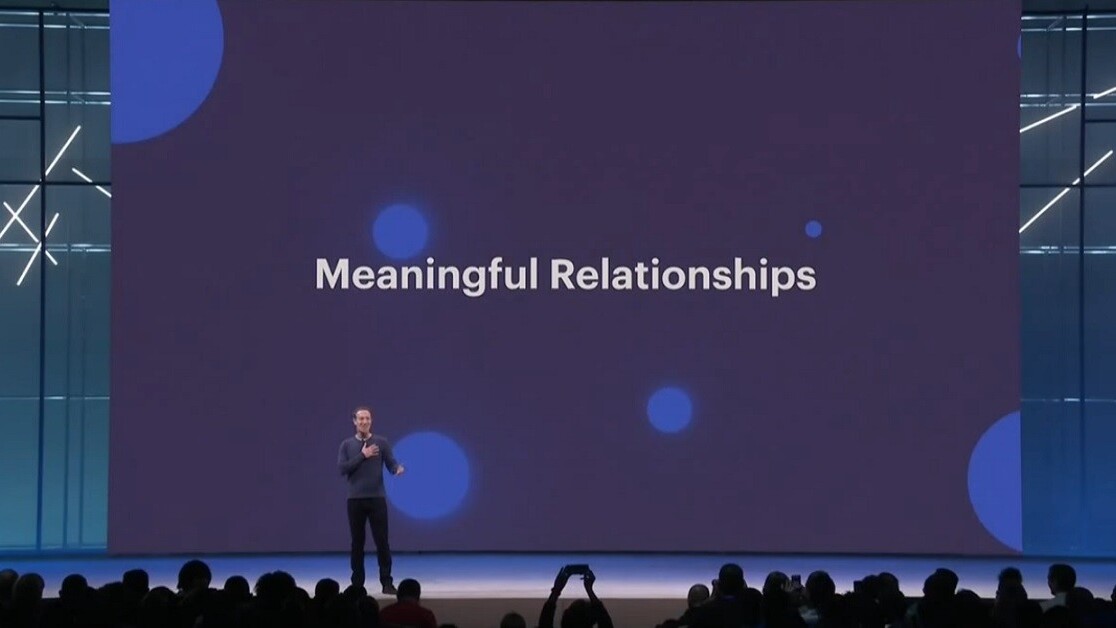
Facebook Dating was always doomed to be as dystopian and inhumane as a speech from Mark “I’m not a robot, I swear it” Zuckerberg, but who could have guessed that the company would consider cheating and hookup sites its direct competition.
The creators of an app called #Open recently started a petition demanding Facebook stop its censorship campaign against sex-positive dating apps. Facebook denied its app several times because it lets users identify as being in a couple, polyamorous, or in an open relationship.

Per a report from Business Insider, #Open’s director of operations, Maile Manliguis said:
Getting to that large user base cost-effectively without being able to use the major digital platform that’s our standard for marketing today, it just makes it a lot more difficult to get your users and drive attention to what we’re doing.
Within two hours of submitting just the general application, we got kickback from Facebook saying that we were not approved because we offer couple and group options, and that puts an emphasis on sex.
Whether or not polyamory or open relationships are a valid alternative to monogamy is a matter of personal opinion, but the fact of the matter is that whether intentionally or not, Facebook’s using its ad policies to curb its competition in the wake of theFacebook Dating launch last year.
The social network won’t let Ashley Madison advertise on its platform because its policies prevent “hook up” apps from advertising on the basis that they’re advocating for sexual encounters. It won’t let polyamory or open-relationship apps advertise on the basis that they’re not relevant to a global audience and it has a specific policy against dating services that allow a “group” or “couple” option.
In a petition on Change.Org, #Open co-founder Amanda Wilson accuses Facebook of censorship:
We built an app that supports the kinds of relationships people are actually looking for, whether they’re in an open relationship and looking for a new partner or they’re looking to find someone to settle down with.
Unfortunately, that’s dirty and shameful to every platform we might use to get the word out: If you want to advertise you can’t be sex-positive—it’s better if you remove words like “sex” and “kink” from your vocabulary, really. Carefully avoid any hint that adults might use your app to find consenting partners to have casual sex with. Don’t let slip they could use your app to openly engage in consensual non-monogamy—that’ll get you blacklisted entirely.
But this may not be a simple matter of Facebook playing the morality cops here. When it, for example, decided that men could post images of themselves shirtless but women could not, it didn’t stand to directly benefit by removing female-presenting nipples. It merely reinforced the inherent sexism and female body-shaming standard that big tech so gleefully embraces.
Here, however, Ashley Madison, #Open, and other dating sites are direct competition with Facebook Dating.
If you want to cheat on your spouse, Facebook Dating’s there to make things easy for you. It’ll hide your relationship status so you can pretend to be single and the algorithm makes sure that nobody in your friend-sphere will see your dating profile, thus lowering the odds that someone will tip off your significant other.
In the past, Facebook let sites such as OKCupid – which has options for couple dating, polyamory, and open relationships – advertise on its platform. Even going so far as to allow for what the social network deems “sexually suggestive” campaigns that gave direct mention to “foreplay” and sex.
But, now that it’s launched its own dating service, we weren’t able to find any ads running from the likes of Tinder, OKCupid, or #Open.
It’s beyond disingenuous to build a dating service that takes great pains to make cheating easy while snubbing apps that offer romance options for those in nontraditional and consensual non-monogamous relationships.
If Facebook wants to inflict its morality on billions of users, maybe it shouldn’t develop services directly for them that don’t meet the bar it sets for companies wishing to advertise similar products on its platform.
Get the TNW newsletter
Get the most important tech news in your inbox each week.





